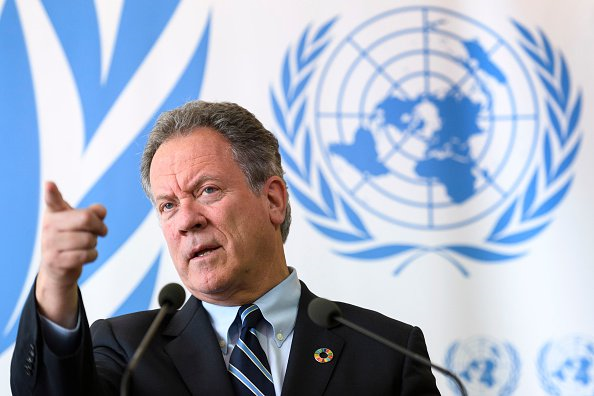WFP Executive Director Appeals for Increased Flexible Funding to Power WFP to Save and Change More Lives

Rome – In 2019, the United Nations World Food Programme (WFP) received $419 million in flexible funding, representing 5 percent of WFP’s total contributions – well below the high-watermark of 19 percent in 2002.
Flexible – or unearmarked – funding means that WFP can determine where and how money is used. It gives WFP the flexibility it needs to respond quickly to unparalleled needs and multiple large-scale hunger emergencies across the world. It also allows WFP to fund neglected crises and deliver vital food assistance to those most in need.
“Flexible funding allows us to be more effective and efficient. We can respond more quickly, save costs and ensure maximum impact for every dollar we receive. Put simply, this mode of funding means that we can save and change more lives every year,” says WFP Executive Director David Beasley.
The levels of flexible funding for WFP are falling and represented just five percent of the total resources provided to the agency in 2019. The decrease goes against the aspirations of the agreement known as the “Grand Bargain,” which was concluded at the World Humanitarian Summit in 2016. Here, leading government donors committed to progressively increase flexible funding with the aim of reaching a global target of 30 percent of humanitarian funding by 2020.
“Donors of flexible funds are true champions – promoting effective cooperation and ambitious partnerships to make a permanent difference in the lives of the people we serve. I urge all WFP donors to increase the proportion of flexible funding they provide as part of their generous support,” says WFP Executive Director Beasley.
In 2019, the top donors of flexible funds included Sweden, the United Kingdom, the Netherlands, Germany, Norway, Denmark, Australia, Canada and Ireland, while Switzerland, Belgium and Germany were top donors to WFP’s Immediate Response Account – which is WFP’s lifesaving funding facility that allows WFP to respond rapidly to emergencies.
In Zimbabwe, flexible funds are helping WFP to save lives as 7.7 million people are caught up in the country’s worst hunger crisis in a decade. In Cox’s Bazar in Bangladesh, where one million Rohingya refugees have sought sanctuary, flexible funding has allowed WFP to continue its life-saving assistance in the camps through food distributions and electronic vouchers with which beneficiaries can pay for their essential needs. And in Colombia, flexible funds are helping provide food assistance to address the vulnerabilities of Venezuelan migrants.
###
The United Nations World Food Programme is the world’s largest humanitarian organization, saving lives in emergencies, building prosperity and supporting a sustainable future for people recovering from conflict, disasters and the impact of climate change.
Follow us on Twitter @WFPUSA @WFP_media




